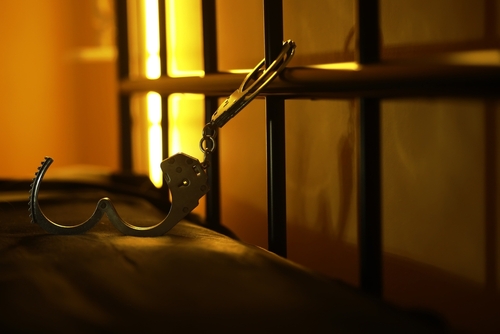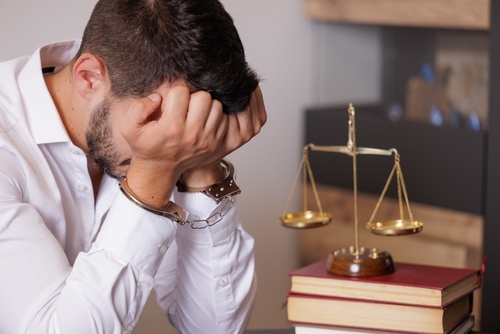After a second DUI charge in Texas, several defenses may help avoid jail time. Challenging the legality of the traffic stop is one approach, as police must have reasonable suspicion to pull someone over. Breathalyzer and blood test results can also be questioned if there were errors in administration or equipment calibration. Field sobriety tests are often unreliable, as factors like uneven surfaces or medical conditions can affect performance.
A skilled Fort Worth criminal defense lawyer can analyze the case, identify weaknesses in the prosecution’s evidence, and negotiate for reduced penalties. They may work to secure alternative sentencing options like probation or alcohol treatment programs instead of jail. If the case goes to trial, an attorney can present a strong defense to create reasonable doubt. Having experienced legal representation significantly increases the chances of achieving a more favorable outcome following a second DUI.
Elements of a Second DUI in Texas

To convict someone of a second DUI in Texas, the state prosecutor must present enough evidence to convince the judge or jury that the person was guilty beyond a reasonable doubt.
First, the prosecutor must establish that the accused (the defendant) was operating a motor vehicle in a public place. This means proving that the person was in control of a car, truck, or any other motor vehicle while on a roadway, parking lot, or any other area accessible to the public.
The next step is demonstrating that, at the time of driving, the defendant was intoxicated. Texas law defines intoxication in two main ways: either the driver had a blood alcohol concentration of 0.08 percent or higher, or they had lost the normal use of their mental or physical faculties due to alcohol, drugs, or a combination of both. The state may use different types of evidence to support this claim, including breathalyzer or blood test results, field sobriety tests, police officer observations, and even witness statements. If the defendant refused chemical testing, the prosecutor may argue that this refusal suggests consciousness of guilt.
For a second DUI charge, the prosecutor must also prove that the defendant has a prior conviction for driving under the influence. This means showing that there was a previous case where the person was found guilty or pled guilty to a DUI offense, whether in Texas or another state where the laws are substantially similar. Official court records, driving records, or certified documents are commonly used to establish this prior conviction. The prosecutor does not need to prove that the defendant knew they had a prior conviction – only that the conviction exists and is legally valid. Choose a criminal defense lawyer early to examine the validity of the prior conviction and challenge any weak points in the prosecution’s case.
The evidence presented in court must be strong enough to remove any reasonable doubt in the minds of the judge or jury. The defense has the opportunity to challenge the accuracy of the breath or blood tests, question the officer’s observations, or argue that the stop was unlawful. However, if the prosecutor can successfully demonstrate all required elements with credible evidence, the court can find the defendant guilty of a second DUI offense under Texas law.
Potential Penalties and Collateral Consequences of a Second DUI Conviction in Texas
A second DUI conviction in Texas carries serious legal penalties and collateral consequences that can affect many aspects of a person’s life. The legal penalties are more severe than for a first offense, as the court considers a repeat offense a sign of continued risky behavior.
A person convicted of a second DUI faces mandatory fines, possible jail time, and a longer driver’s license suspension. The length of jail time can vary depending on the circumstances of the case, but the court may impose a minimum sentence to ensure that the person serves time. Additionally, the convicted person may be required to install an ignition interlock device on their vehicle, which prevents their car from starting if alcohol is detected on their breath. The court may also order participation in an alcohol education or treatment program to address any substance abuse issues. I need a lawyer becomes a serious consideration at this stage, as the consequences can quickly escalate without proper legal guidance. Probation is another possible outcome, and it typically comes with strict conditions, such as regular check-ins, community service, and restrictions on alcohol consumption.
Beyond the direct legal penalties, a second DUI conviction comes with various collateral consequences that can affect a person’s daily life. A suspended driver’s license can make it difficult to get to work, school, or other important obligations. Some employers may hesitate to hire or retain someone with multiple DUI convictions, especially if the job involves driving. Certain professional licenses, such as those required for healthcare workers, teachers, or commercial drivers, may be suspended or revoked. Auto insurance rates are also likely to increase significantly, and some insurance companies may refuse to provide coverage altogether.
A criminal record with multiple DUI convictions can also affect housing opportunities. Landlords may be less willing to rent to someone with a history of legal trouble – particularly if the charges suggest a pattern of irresponsible behavior. Can I clear my criminal record after a second DUI? In some cases, it may be possible through expungement or nondisclosure, but eligibility depends on the specifics of the conviction and Texas law. If the person is involved in a child custody dispute, a second DUI conviction may be used as evidence that they are unfit to care for a child. Additionally, traveling to certain countries may become more difficult, as some nations have strict policies regarding visitors with criminal records.
Potential Defenses to a Second DUI in Texas
When facing a second DUI charge in Texas, there are several legal defenses that may help avoid jail time. A strong defense strategy often focuses on challenging the evidence presented by the prosecution. One possible defense is questioning the legality of the traffic stop. If the police officer did not have a valid reason to pull the driver over, any evidence gathered afterward, including breath or blood test results, may be ruled inadmissible in court. Officers must have reasonable suspicion that a driver is committing a traffic violation or probable cause that a crime is being committed.
Another defense involves disputing the accuracy of chemical tests used to determine blood alcohol concentration (BAC). Breathalyzers and blood tests are not always reliable, and errors in administration, maintenance, or calibration can lead to inaccurate results. A skilled DUI defense lawyer may investigate whether the device was properly maintained or if the test was conducted incorrectly. Additionally, medical conditions such as acid reflux, diabetes, or certain diets can cause false positives on a breath test. If there is doubt about the accuracy of the test results, the court may dismiss or reduce the charges.
The field sobriety tests that officers use during a DUI stop can also be challenged. These tests, such as walking in a straight line or standing on one leg, are highly subjective and influenced by many factors. Poor lighting, uneven pavement, bad weather, or even nervousness can cause a person to fail a test despite being sober. What are the penalties if these tests are accepted without question? They can include fines, jail time, license suspension, and more—making it essential to scrutinize their reliability. If the officer did not properly instruct the driver or misinterpreted their performance, this may weaken the prosecution’s case.
Another potential defense is arguing that the defendant was not actually driving while intoxicated. In some cases, the police may find a person in a parked vehicle and assume they were driving under the influence. However, if there is no clear evidence that the person was operating the vehicle, the case may be dismissed.
If avoiding a conviction is not possible, an attorney may negotiate for alternative sentencing options. This can include probation, alcohol treatment programs, or community service instead of jail time. Avoid jail time by working with a lawyer who can present your case in the best possible light and push for sentencing alternatives. Judges may be more lenient if they believe the defendant is taking steps to address any underlying alcohol issues. With a well-prepared defense, it’s possible to reduce charges, minimize penalties, and, in some cases, avoid jail time altogether.
Plea Deal Versus Trial for a Second DUI in Texas

After being charged with a second DUI in Texas, one of the most important decisions is whether to accept a plea deal or take the case to trial. Each option carries risks and potential benefits, and the right choice depends on the strength of the evidence, the likelihood of conviction, and personal circumstances. What makes a good Texas criminal attorney in this scenario is someone who can break down the legal risks, explain your options clearly, and build a strategy tailored to your best outcome.
A plea deal involves negotiating with the prosecutor to agree on a lesser charge or reduced penalties in exchange for pleading guilty or no contest. This can sometimes result in avoiding the maximum jail time, lower fines, or alternative sentencing options such as probation or alcohol treatment programs. One of the biggest advantages of a plea deal is certainty. Trials are unpredictable, and even with a strong defense, there is always a risk of being convicted and facing the full penalties of a second DUI offense. A plea bargain allows the defendant to have more control over the outcome and avoid the stress, time, and costs associated with a trial.
On the other hand, taking the case to trial offers the opportunity to fight the charges entirely. If the defense has strong arguments – such as a lack of probable cause for the traffic stop, unreliable breathalyzer results, or improper police procedures – it may be possible to secure a not-guilty verdict. A trial allows the defense to challenge the prosecution’s evidence, cross-examine witnesses, and present counterarguments that can create reasonable doubt in the minds of the jury. If successful, the defendant may avoid a conviction altogether, keeping their criminal record clean and avoiding the harsh penalties of a second DUI. However, if the prosecution has strong evidence, the risk of a conviction increases, which may lead to the full penalties being imposed.
Choosing between a plea deal and a trial requires careful evaluation of the case. What does a criminal defense lawyer do in this situation? They review the evidence, explain the risks of each option, and guide you toward the most strategic decision. Consulting with an experienced DUI attorney is invaluable, as they can assess the strength of the prosecution’s evidence and determine the best course of action. For some, accepting a plea deal may provide the best chance of avoiding jail time and minimizing consequences. For others, fighting the charges in court may be the better option if there are significant weaknesses in the case. Ultimately, the decision should be based on legal strategy, potential outcomes, and personal priorities.
How Can a Lawyer Help with Your Second DUI Case in Texas?
Facing a second DUI charge in Texas is a serious legal situation, and having a knowledgeable DUI defense attorney on your side can make a significant difference in the outcome of your case. What you need to know is that the legal system becomes less forgiving with repeat offenses, and acting quickly is critical. An experienced attorney understands the complexities of Texas DUI laws and can navigate the legal system to protect your rights. From the moment they take your case, they begin reviewing the evidence, identifying weaknesses in the prosecution’s arguments, and determining the best course of action. A second DUI charge comes with harsher penalties than a first offense, and your attorney’s goal is to minimize those consequences as much as possible.
One of the first things a defense attorney does is analyze the details of the arrest. They will examine the police report, body camera footage, breathalyzer or blood test results, and any other evidence to ensure that law enforcement followed proper procedures. If there are any violations of your rights, then your attorney can use that information to challenge the case. They can also handle all legal filings, court appearances, and negotiations, relieving you of the stress of having to manage the legal process alone.
In many cases, your attorney can negotiate with the prosecutor to secure a favorable plea deal. This may result in reduced charges, lighter penalties, or alternative sentencing options such as probation, alcohol education programs, or community service instead of jail time. Prosecutors are often more willing to negotiate when dealing with an experienced defense attorney who knows how to present a compelling case for leniency.
If your case goes to trial, your Fort Worth criminal defense lawyer will build a strong strategy for your case, present arguments effectively, and cross-examine witnesses to create doubt in the minds of the judge or jury. They understand how to challenge unreliable evidence and ensure that the prosecution meets its burden of proof. Having a well-prepared attorney increases your chances of a favorable verdict.
Beyond the courtroom, your criminal defense lawyer can provide guidance on how to handle the effects of a second DUI charge. They can advise on how to meet legal requirements, such as attending mandatory programs or installing an ignition interlock device, while also helping to protect your reputation and future opportunities.
Talk with an Experienced DUI Defense Lawyer Today

If you are charged with a second DUI in Texas, you need a skilled criminal defense attorney by your side right away. Your Fort Worth criminal defense lawyer will work hard to protect your interests throughout the proceedings, help you weigh your options, and pursue the best possible result in your DUI case.
About The Author:
Brandon Fulgham has an in-depth understanding of both Texas law and Texans themselves. Before practicing law here, he received his undergraduate degree from TCU and his law degree from South Texas College of Law in Houston. After graduation, he worked in District Attorneys’ offices as a prosecutor. Now, he uses that knowledge to anticipate opposing counsel’s arguments and protect the rights of people in and around Fort Worth. His work has been recognized by Expertise (Best Criminal Defense Lawyers in Forth Worth and Best DUI Lawyers in Fort Worth, both 2020), Fort Worth Magazine, and The National Trial Lawyers, just to name a few.
Author's Bio